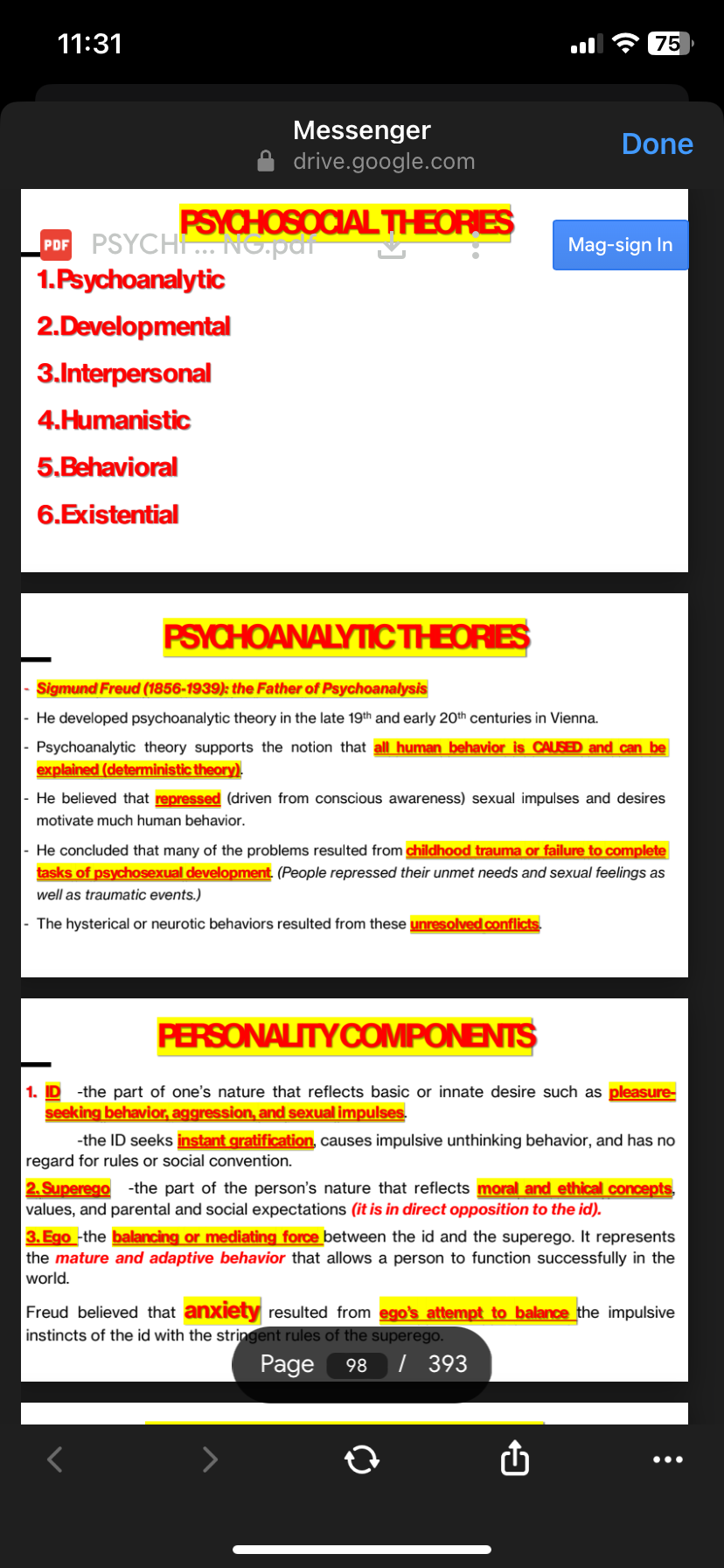Psychosocial Theories: Psychoanalytic, Developmental, Interpersonal, Humanistic, Behavioral, Existential. Psychoanalytic Theories (Sigmund Freud). Personality Components: Id, Super... Psychosocial Theories: Psychoanalytic, Developmental, Interpersonal, Humanistic, Behavioral, Existential. Psychoanalytic Theories (Sigmund Freud). Personality Components: Id, Superego, Ego.

Understand the Problem
The image shows excerpts from a psychology textbook or study guide, covering topics like psychosocial theories (Psychoanalytic, Developmental, Interpersonal, Humanistic, Behavioral, Existential), the foundations of Psychoanalytic theory according to Sigmund Freud, and the components of personality (Id, Superego, Ego). It appears to be study notes, rather than a specific question.
Answer
The personality components are Id, Superego, and Ego.
The personality components are:
- Id: Reflects basic desires, seeks instant gratification.
- Superego: Reflects moral and ethical concepts.
- Ego: Balances the Id and Superego and allows a person to function successfully in the world.
Answer for screen readers
The personality components are:
- Id: Reflects basic desires, seeks instant gratification.
- Superego: Reflects moral and ethical concepts.
- Ego: Balances the Id and Superego and allows a person to function successfully in the world.
More Information
Sigmund Freud's psychoanalytic theory states that the Id, Superego and Ego develop at different stages.
Tips
A common mistake is thinking the ID and Superego can work together, but the superego is in direct opposition to the id.
Sources
- Id, Ego, & Superego | Freud & Examples - Simply Psychology - simplypsychology.org
- Id, Ego, and Superego: Freud's Elements of Personality - verywellmind.com
AI-generated content may contain errors. Please verify critical information